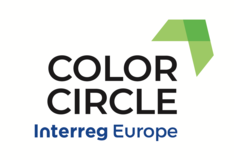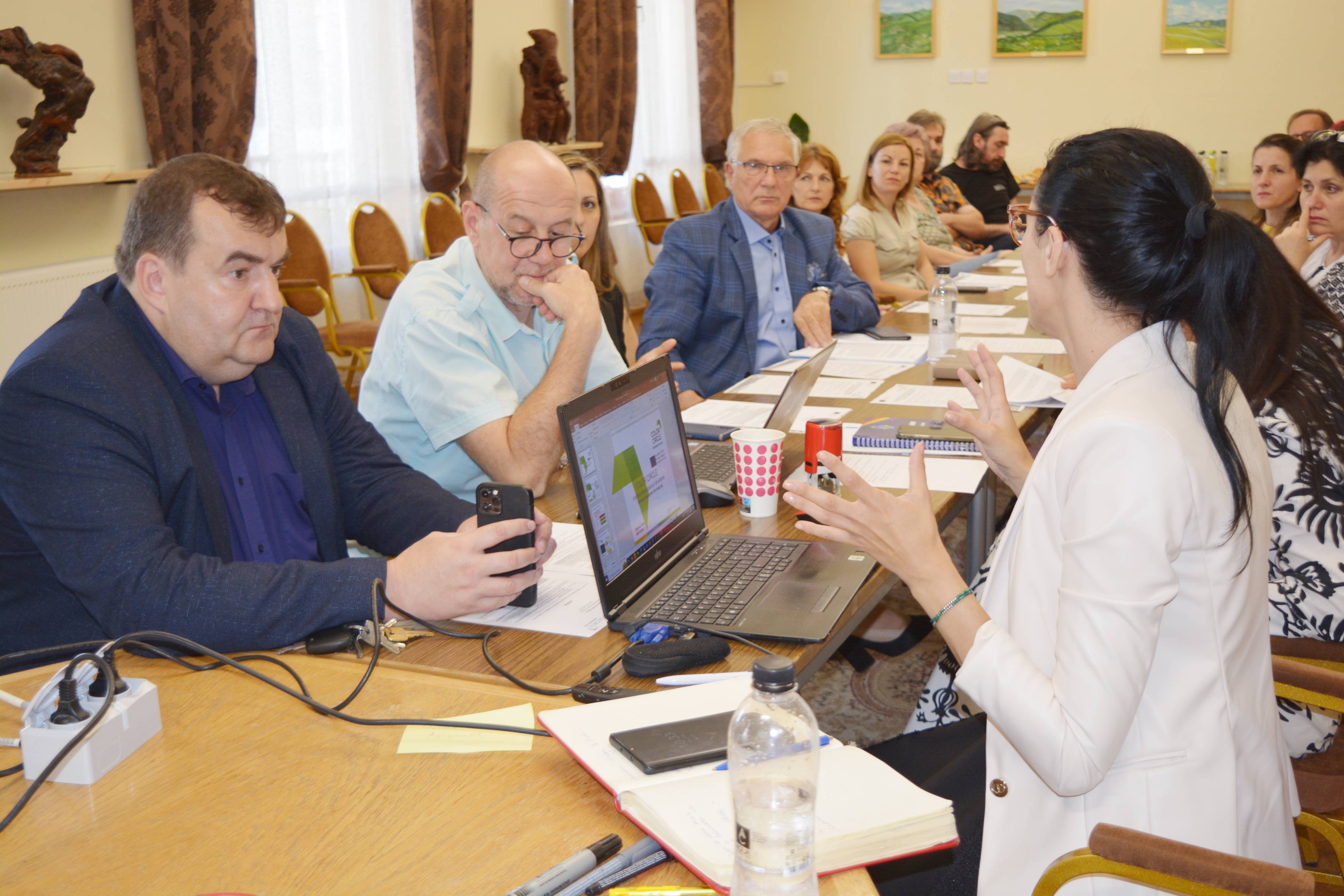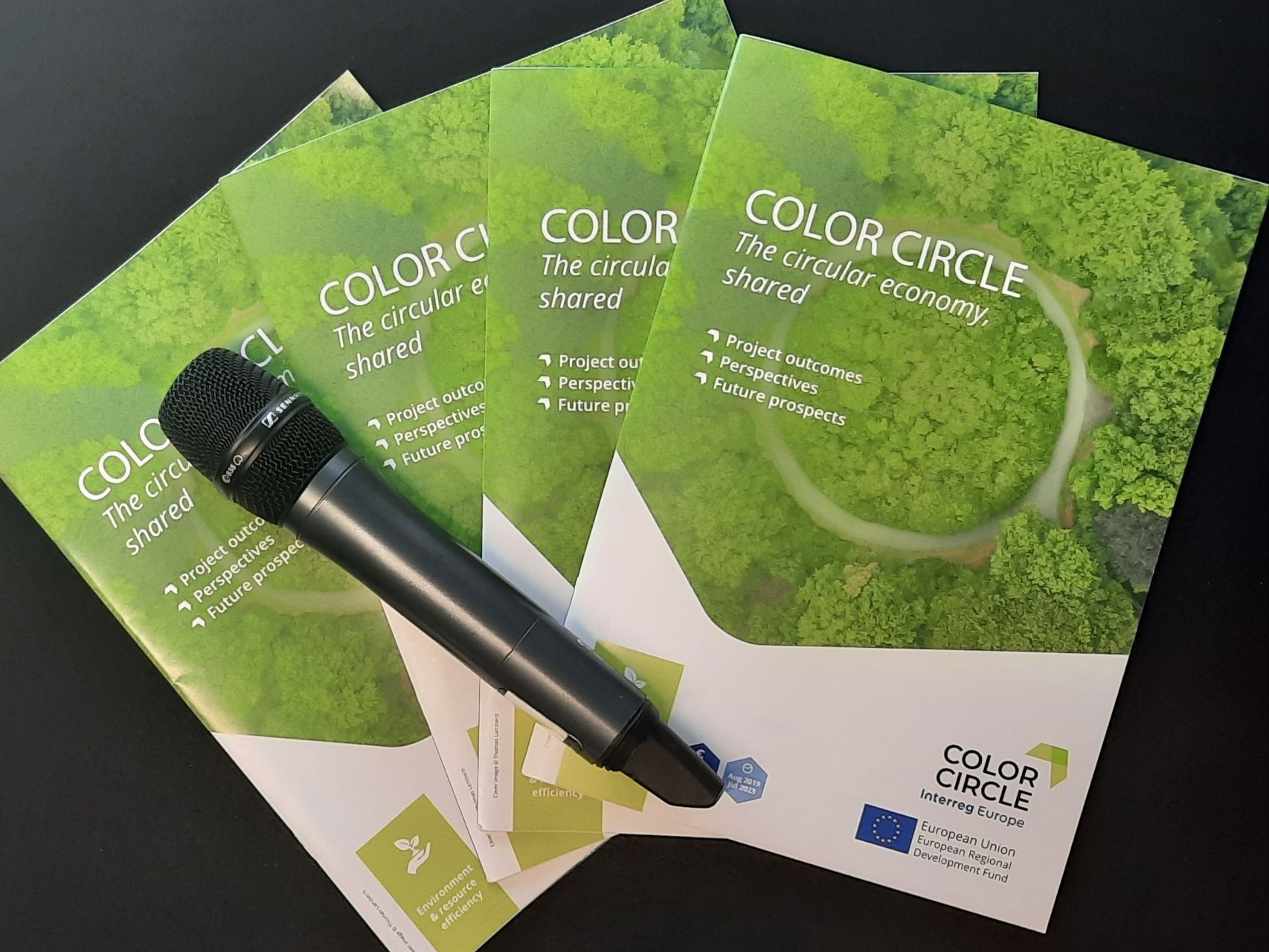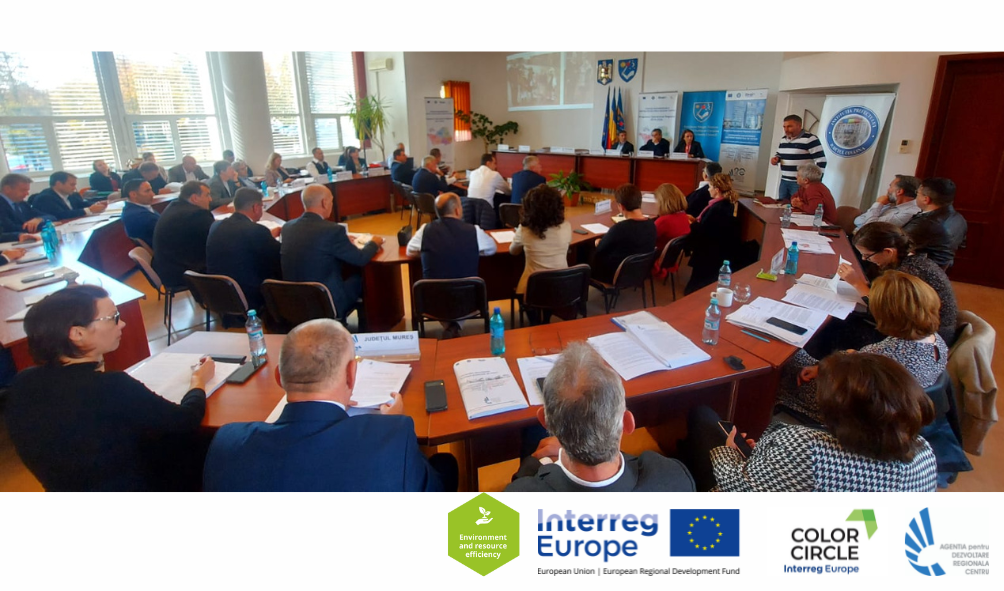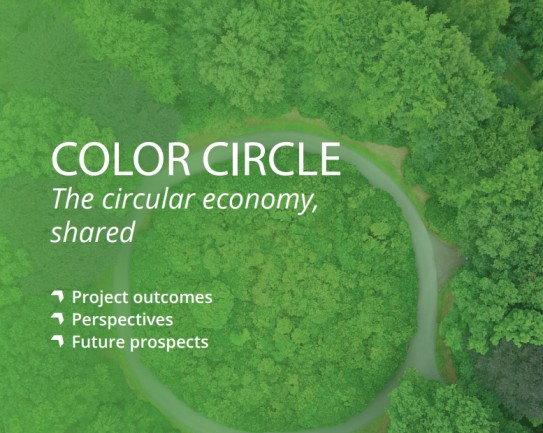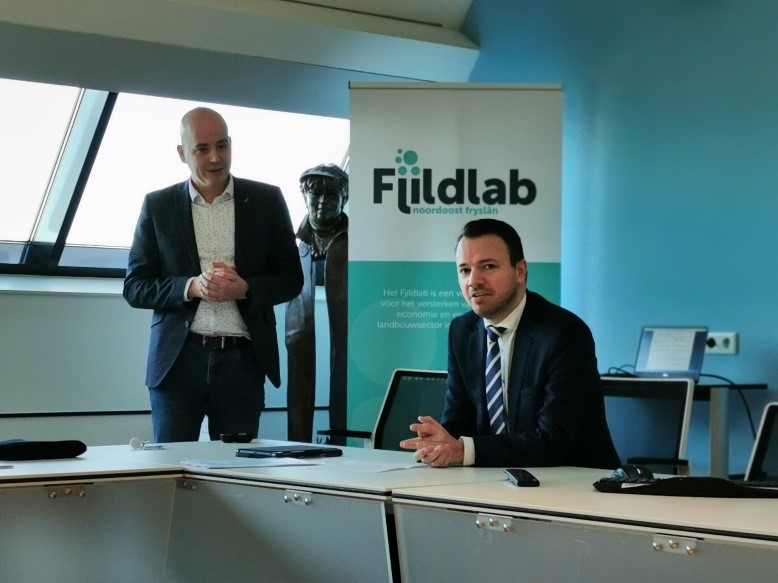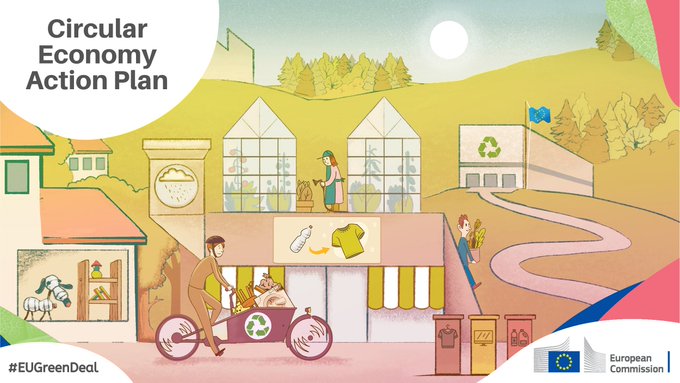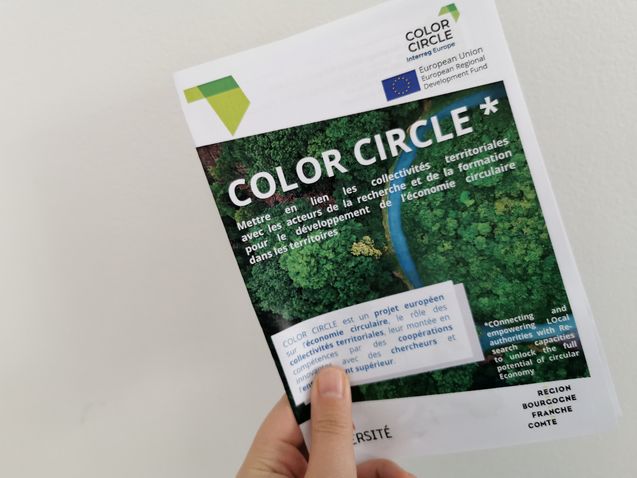Adoption of the Action Plan for the Circular Economy and Knowledge Transfer in Granada
On 18 July 2022 the Deputy for Employment and Sustainable Development of the Provincial Council of Granada signed the document containing the Action Plan (AP) for the Circular Economy (CE) and Knowledge Transfer in Granada. This AP is co-designed by the different stakeholders that have participated in the project over 3 years, especially the University of Granada (UGR), the preferred partner for the Diputación de Granada in this project.
COLOR CIRCLE project and inspiring practices
The development of the Granada AP relied on an intense exchange of experiences, collaborative work between project partners and co-creation sessions with stakeholders.
Although learning about the CE and its different facets through the different good practices (GP) known has been very enriching, 2 GP have been particularly inspiring, precisely because they represent ways of working, instruments for generating knowledge and governance that can be exported to other areas:
1000 PhD for the territory: A state-funded programme managed by HESAM that facilitates the access of PhD students to territories, NGOs and local entities for 3 years. HESAM created a platform to support this process among 3 types of actors:
- The future PhD student
- The host: public administration/association
- Researcher (belonging to the university or similar).
Fjildlab: Field laboratory for the strengthening of the CE and a sustainable agricultural sector in Northeast Fryslân. With a special concern for a high-value landscape, collaborative quadruple helix model, with a bottom-up approach, where partners are working on innovative solutions and new business models for the agricultural sector.
In the case of Granada, we already have a tangible result, as we implemented a Pilot action, the Bridges Project. It has become a programme with a vocation of permanence. It is carrying out its second call and foresees at least a third call. Following in the footsteps of the HESAM programme, it provides research personnel to territories. Although less ambitious, the programme is adapted to the characteristics of the province, the time and the budget available. 60 municipalities so far have had or will have a new resource to plan local development actions, always trying to have a sustainable and CE orientation.
Objectives and specific actions of the AP
The AP consists of 2 major actions, well differentiated, but which certainly are two sides of the same coin: the rapprochement between the territory and the field of training and knowledge creation, the transfer of knowledge. New channels are created, and existing channels are intensified to bring the needs of the territory - in terms of expert knowledge to address their challenges - to the area where the knowledge is produced. UGR reinforces its role as an agent of change and development in its geographical context of reference, the province.
The first action consists of continuing and improving the development of the aforementioned Bridges Programme, which is obtaining positive results for the implementation of the Urban Agenda in Granada. The second action consists of the creation of a working table/group to promote the link between the Provincial Council and the UGR, with the general objective of bringing knowledge closer to the territory. A General Protocol of Actions was signed on 29/11/2022 by the President of the Provincial Council and the Rector of the University to establish the contents of this process and to ensure the commitment of both parties. Afterwards, a series of actions will be added to address sustainability challenges in the province in a process of innovation laboratories. Face-to-face sessions were held on 30/11 and 20/12/2022.
Among the activities planned for this linkage roundtable are:
- The analysis and systematisation of the potential development actions identified or specific needs detected in the territory thanks to the Urban Agenda.
- The creation of a digital space or tool so the information described is open and easily accessible, in the form of a marketplace and connected with the research potential of the UGR.
- The promotion of specific actions to support the "REORIENTATION" of academic and research university staff to the needs of the province through a service-learning approach, awareness-raising actions and the development of advice for research staff applying for projects, promoting their reorientation towards the issues of the territory, and thus helping them to consider the social impact of their research.
Main actors involved
Although other agents may participate in the development of some activities, the 3 key actors are the UGR as the main educational institution in the province and within the state's top 5, the Granada County Council, which is the body that assists small municipalities that cannot cover all the subjects and, above all, the municipalities, the main recipients of this alliance.
